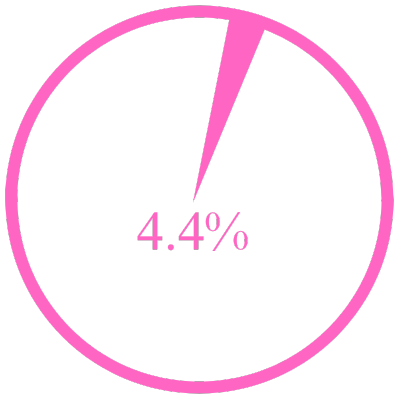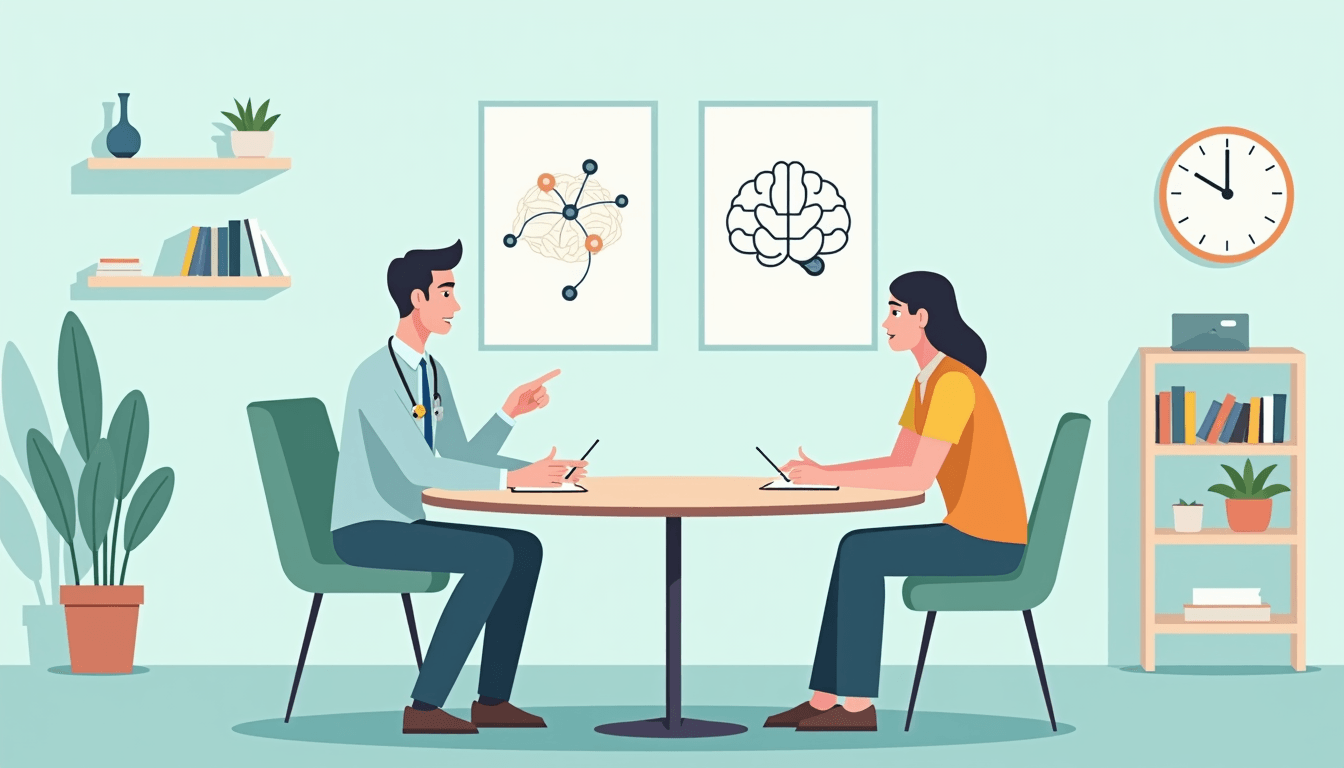What Medical Experts Can Do to Diagnose and Treat ADHD
Consult a medical expert who specializes in treating ADHD. Online, have your symptoms evaluated and get tailored advice.
The National Institute of Mental Health reports that 4.4% of American adults suffer from attention deficit hyperactivity disorder (ADHD). Since ADHD is a specialized condition, not all doctors are qualified to diagnose and treat it. Furthermore, some medical experts are capable of diagnosing and evaluating symptoms, but they are unable to administer medication or create a treatment plan. To learn more about who can diagnose ADHD, who can treat it, and who can prescribe medication or offer psychotherapy, continue reading.

What Must You Do If You Think You May Have ADHD?
Many factors might lead to an incorrect or erroneous diagnosis of ADHD, which has a wide range of symptoms. People who exhibit symptoms of ADHD often contest their diagnosis. Because of this, only a medical professional who specializes in treating ADHD disorders, such as an ADHD specialist, can accurately diagnose the condition.
There are situations where personality disorders and other mental health issues like anxiety and depression are mistaken for the signs of ADHD. In other situations, impulsivity and a propensity for disorganization might be seen as typical personality traits. On the other hand, ADHD is a medical disorder, and a person’s quality of life may be greatly impacted by its symptoms.

Who Is Able to Diagnose and Treat Adult ADHD?
While general practitioners are capable of identifying signs of ADHD, not all of them are equipped to provide targeted therapies. It is advisable to consult a doctor that specializes in treating ADHD since there is a high likelihood of misdiagnosing the illness. The list of ADHD experts, including those who are authorized to administer ADHD medications, is provided below.

Psychiatrists
- Able to identify ADHD
- Capable of writing prescriptions
- Able to give behavior training and psychotherapy
Psychiatrists are competent to diagnose ADHD and conduct ADHD testing, including psychological testing and symptom assessment. They may also provide psychotherapy and counseling in addition to prescribing ADHD medications, including stimulants and non-stimulants. For behavioral training, psychiatrists may also recommend their patients to other mental health specialists like therapists.
PCPs, or primary care providers
- Able to identify ADHD
- Capable of writing prescriptions
- Can provide therapy, although they often don’t
Using the patient’s medical history and symptoms, primary care physicians may diagnose ADHD. For ADHD, they could recommend medication. While many general care physicians send their patients to mental health professionals for counseling or treatment, others may give it themselves.
Physicians
- Able to identify ADHD
- Capable of writing prescriptions
- Not able to provide counseling (except from psychiatrists)
Physicians (MDs), particularly psychiatrists, are often asked to do intricate evaluations, validate diagnoses, and rule out underlying illnesses. They may customize treatment regimens and prescribe various drugs based on the individual requirements of each patient. When appropriate, physicians may provide advanced therapy alternatives, such as non-pharmacological therapies for ADHD like neurofeedback or transcranial magnetic stimulation (TMS).
Family Physicians
- Able to identify ADHD
- Capable of writing prescriptions
- Not able to provide therapy
Family physicians may be the one with whom someone with ADHD symptoms initially consults. These experts gather information on prior medical history, developmental milestones, and current symptoms in order to give thorough assessments. In addition to recommending behavioral treatment, family physicians may connect patients with appropriate experts. They may also recommend non-stimulants and popular stimulants for ADHD.
Medical professionals
- Help with a thorough diagnosis
- Capable of writing prescriptions
- Don’t offer therapy
Doctors thoroughly assess the symptoms and medical history of their patients. To rule out any other medical or mental disease with identical symptoms, these evaluations are necessary. These experts may also help with ADHD therapy by keeping a careful eye on the side effects and efficacy of drugs and adjusting them as needed.
Neuroscientists
- Help with a thorough diagnosis
- Able to recommend drugs for ADHD
- Never conduct psychotherapy.
Adult ADD may be diagnosed by neurologists, particularly when it coexists with other neurological disorders or comorbidities. They are able to recommend ADHD medications. Neurologists may refer patients to other doctors but usually do not provide treatment.
Nurse Practitioners
- May aid in the identification of ADHD
- assistance in the administration of medications
- Help with behavioral treatments
NPs are able to provide thorough assessments with the use of standardized screening instruments like the ADHD Rating Scale. They might use their professional knowledge to get a thorough medical history and observe how patients behave. In order to provide a whole image of patients’ experiences and challenges with ADHD, they may also help to foster cooperative interactions with patients and their families.
Medical Assistants (PA)
- Aid in the diagnosis of ADHD
- Prescribe ADHD drugs while keeping an eye on things
- Not able to provide behavior treatment or counseling
Under supervision, physician assistants may work with other professionals, such psychiatrists, to provide more thorough exams for ADHD. Using their expertise in the illness, PAs have a major role in educating patients and their families about ADHD, its affects, and available therapies. By setting up regular follow-up consultations, keeping an eye on their development, responding to concerns, and making sure they collaborate closely with other medical professionals engaged in their treatment, they provide their patients continuous support.
Psychologists
- Able to identify ADHD
- Unable to write prescriptions
- Able to provide behavior treatment and counseling
Through exams and assessments of mental health, psychologists are able to diagnose ADHD. While they are not allowed to administer medication, they may direct patients seeking medication management to psychiatrists or other medical specialists. For those with ADHD, psychologists are well suited to provide behavior instruction, counseling, and treatment.
Therapists
- Unable to identify ADHD
- Unable to write prescriptions
- Capable of offering psychotherapy and counseling
While they may provide professional assistance and mental health treatment, professional counselors and social workers are often not equipped to diagnose attention deficit hyperactivity disorder. Although they are not allowed to provide ADHD medication to adults, they are experts in behavior training, counseling, and therapy.
Social Workers
- Unable to identify ADHD
- Unable to write prescriptions
- Able to support treatment and behavior change
These experts, who are skilled in psychosocial evaluations and knowledgeable about the social determinants of health, may aid in the diagnostic process by finding out about the patient’s social and family history. Social workers may also provide psychoeducation to families and individuals to assist them explore coping strategies and understand the challenges associated with ADHD. They are crucial in helping patients locate community resources and support services.
Can Doctors Online Recognize and Treat ADHD?
Through virtual consultations, qualified online physicians can diagnose and treat adult ADHD. To establish a preliminary diagnosis, they might collect data on symptoms and medical history, as well as do online evaluations.
An online doctor may provide counseling or therapy in addition to official medicine prescriptions if needed. To make sure you get the right therapy, it’s crucial to speak with a qualified healthcare provider who is skilled in diagnosing and treating ADHD, whether in person or virtually.
Considerations for Selecting an ADHD Expert
When selecting a physician that treats adult ADHD, you should take into account a number of criteria to make sure you get the best treatment possible:
- Credentials and Qualifications: Verify that the specialist has ADHD experience and is a certified healthcare practitioner.
- Experience: Seek a healthcare professional with prior expertise in the diagnosis and management of ADHD.
- Reviews: You may assess experts by reading reviews or asking friends, family, or support groups for recommendations.
- Therapy Strategies: Find out from the expert what their approaches are to therapy. While some include behavioral therapy or counseling, others place more of an emphasis on medicine administration. Choose a medical provider whose treatment philosophy aligns with your interests.
- Communication Style: It’s critical to have open lines of communication with your supplier. Make sure you feel comfortable sharing your concerns with the expert and that they have a discussion about your needs and preferences.
- Accessibility: If you schedule in-person sessions, consider the specialist’s availability and proximity.
- Follow-ups and Support: Find out from the expert how they handle follow-ups and provide ongoing help. For the management of ADHD, long-term care and continuing assistance are often required.
How Do Physicians Diagnose Adult ADHD?
For attention deficit hyperactivity disorder, there isn’t a single test. To rule out the potential of other mental health conditions with symptoms comparable to ADHD, a healthcare expert must perform a battery of tests. The Diagnostic and Statistical Manual of Mental Disorders is used by a professional to make an ADHD diagnosis (DSM). This article includes a list of all adult ADHD symptoms in addition to other medical disorders. A physician may also use the following techniques:
Interviewing the adult ADHD patient’s spouse and other family members. The accuracy of the diagnosis is increased when many respondents provide information.
Looking through family history to rule out early childhood factors or hereditary ADHD.
Using ADHD rating scales to assess the severity of symptoms.
Specific methods may differ across physicians, but common criteria always determine the outcome in the end.
For the diagnosis and treatment of ADHD, several physicians are available. This road is made more accessible by the availability of professional help and empowerment from licensed healthcare specialists over the internet nowadays.
Frequently Asked Questions
Who can prescribe ADHD medications?
Medical professionals, including psychiatrists and certain nurse practitioners with specialized training, can prescribe ADHD drugs. Keep in mind that state laws may differ.
Who can prescribe stimulants?
Licensed psychiatrists and physicians can prescribe ADHD drugs, especially stimulants.
How to talk to a doctor about ADHD?
It's crucial to be open and honest about your symptoms and worries when speaking with a doctor about ADHD. Additionally, you ought to provide any pertinent family and medical histories pertaining to ADHD. Explaining how ADHD symptoms impact your day-to-day activities is essential.
Should I consult a psychologist or a psychiatrist for ADHD?
For ADHD, you can see a psychologist as well as a psychiatrist. In order to diagnose patients and offer talk therapy, psychologists might perform evaluations. Conversely, psychiatrists are medical professionals who are qualified to diagnose the illness and, if necessary, provide medicine.
Can a therapist diagnose ADHD?
Therapists like psychologists can diagnose ADHD through tests, but only medical professionals (doctor, psychiatrist) can give medication.
Can a neurologist diagnose ADHD?
Therapists like psychologists can diagnose ADHD through tests, but only medical professionals (doctor, psychiatrist) can give medication
